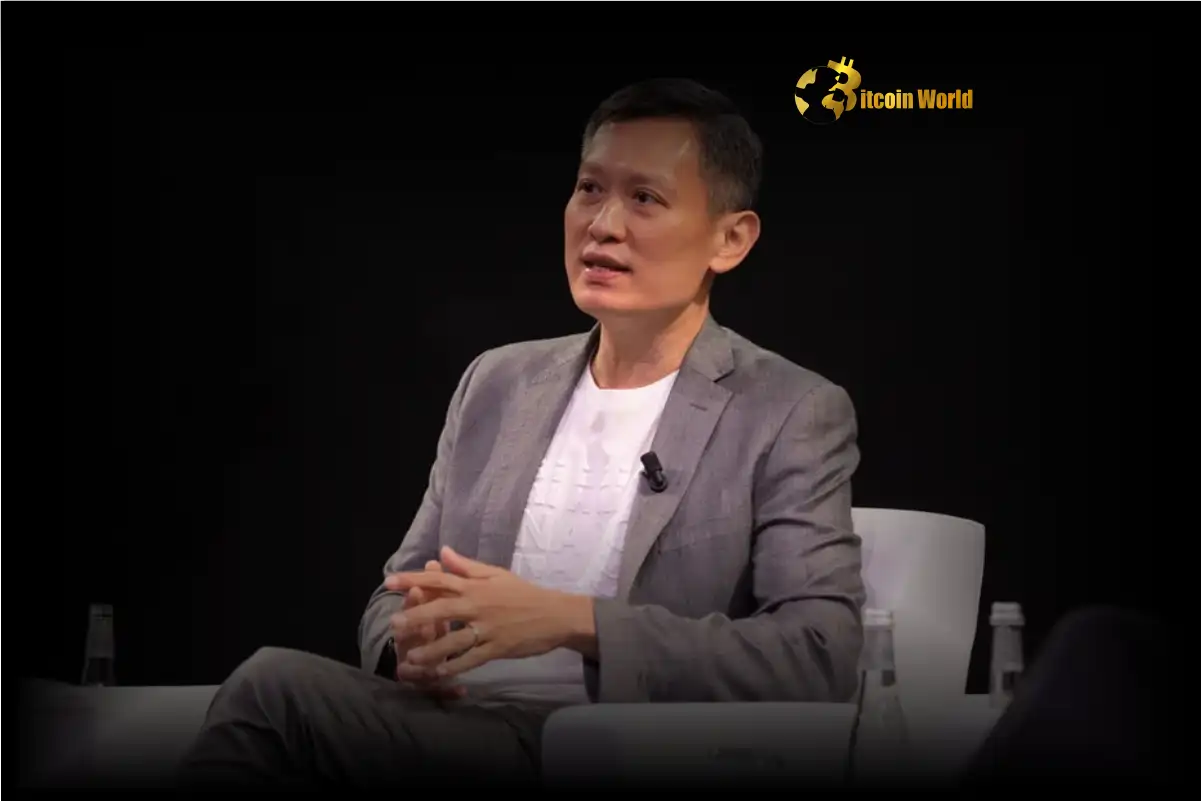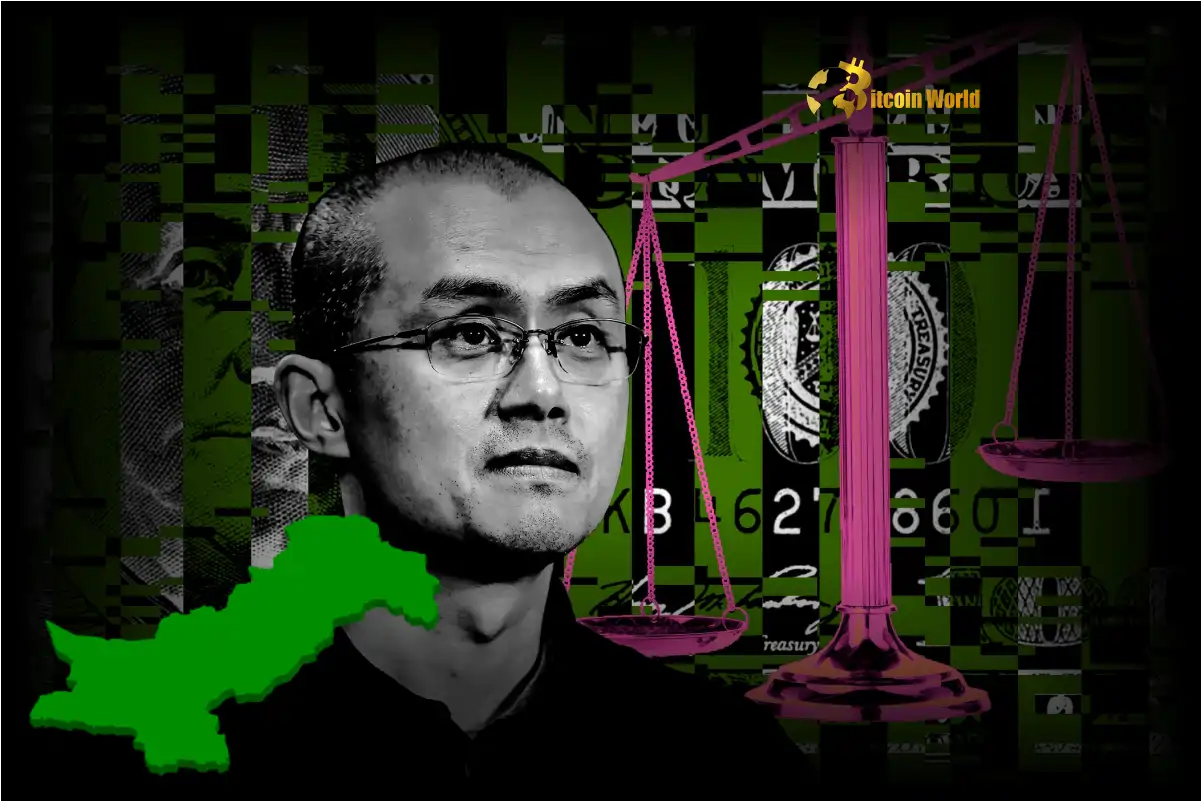Are you feeling the tremors of global market volatility? The financial landscape is shifting, and whispers of trade tensions are growing louder. But amidst this uncertainty, could there be a silver lining for the crypto world? Richard Teng, the CEO of Binance, one of the world’s leading cryptocurrency exchanges, thinks so. In a recent statement on X, Teng highlighted how rising trade protectionism, while initially causing market jitters, might actually boost crypto appeal in the long run. Let’s dive into why this perspective is gaining traction and what it means for the future of digital assets.
Navigating the Storm: Trade Tensions and Market Volatility
Global trade tensions are back in the spotlight, casting a shadow of uncertainty over traditional markets. When nations impose tariffs and trade barriers, it disrupts established economic flows, leading to:
- Increased Market Instability: Trade disputes can trigger fluctuations in stock markets, currency values, and commodity prices as investors react to the changing economic outlook.
- Risk-Off Sentiment: Uncertainty breeds caution. Investors often adopt a ‘risk-off’ approach during periods of trade tensions, moving away from perceived risky assets towards safer havens. This can lead to temporary downturns in various markets.
- Supply Chain Disruptions: Trade barriers can disrupt global supply chains, impacting businesses and potentially leading to inflation as companies struggle to source materials and goods efficiently.
Richard Teng acknowledged this immediate ‘risk-off’ sentiment in his statement. However, he argues that this short-term reaction might pave the way for a more profound, long-term shift in how investors perceive cryptocurrencies, especially Bitcoin.
The Crypto Silver Lining: Why Uncertainty Fuels Long-Term Appeal
So, how exactly do trade tensions and market volatility translate into a potential boost in crypto appeal? The answer lies in crypto’s unique characteristics as a non-sovereign asset class.
Bitcoin: The Resilient Store of Value in Turbulent Times
Teng specifically pointed to Bitcoin’s resilience during times of economic stress. Here’s why Bitcoin and other cryptocurrencies are increasingly seen as a safe harbor in stormy financial seas:
- Decentralization: Unlike traditional currencies controlled by central banks and governments, Bitcoin operates on a decentralized network. This means it’s less susceptible to the political and economic decisions of any single nation, offering a degree of insulation from trade tensions.
- Limited Supply: Bitcoin’s supply is capped at 21 million coins. This scarcity is a core part of its value proposition, mirroring precious metals like gold. In times of inflation or currency devaluation (which can be exacerbated by trade wars), this limited supply makes Bitcoin an attractive store of value.
- Global Accessibility: Cryptocurrency markets operate 24/7 and are accessible globally. This contrasts with traditional financial markets that can be restricted by geographical boundaries and banking regulations, making crypto a more universally accessible asset, especially during periods of international economic friction.
- Hedge Against Inflation: Some investors view Bitcoin as a hedge against inflation. As governments potentially resort to inflationary measures to manage economic fallout from trade disputes, assets with limited supply like Bitcoin could become increasingly appealing.
Beyond Bitcoin: The Broader Crypto Ecosystem
While Bitcoin often takes center stage, the potential boost in crypto appeal extends to the broader cryptocurrency ecosystem. Other digital assets, each with their unique functionalities and use cases, can also benefit from increased interest during times of economic uncertainty.
| Cryptocurrency | Potential Appeal During Trade Tensions |
|---|---|
| Ethereum (ETH) | Its robust ecosystem of decentralized applications (dApps) and smart contracts offers alternatives to traditional financial services, potentially becoming more attractive if traditional systems face disruption. |
| Stablecoins (e.g., USDT, USDC) | Pegged to fiat currencies like the US dollar, stablecoins can offer a refuge from volatile crypto markets while still residing within the digital asset space, providing a bridge between traditional and crypto finance. |
| Decentralized Finance (DeFi) Tokens | DeFi platforms aim to replicate traditional financial services (lending, borrowing, trading) in a decentralized manner. Increased scrutiny or instability in traditional finance could drive users towards these alternative systems. |
Actionable Insights: Navigating Crypto in a World of Trade Tensions
For investors and those curious about the crypto space, here are some actionable insights to consider as global trade tensions evolve:
- Do Your Research: Understand the fundamentals of Bitcoin and other cryptocurrencies. Don’t invest blindly based on hype. Explore different crypto projects and their use cases.
- Diversify Your Portfolio: Don’t put all your eggs in one basket. Consider diversifying your investments across different asset classes, including a carefully considered allocation to cryptocurrencies.
- Stay Informed: Keep abreast of global economic developments, including trade tensions and their potential impact on financial markets. Follow reputable news sources and crypto market analysis.
- Manage Risk: Cryptocurrency markets are volatile. Invest only what you can afford to lose and utilize risk management strategies like dollar-cost averaging.
- Consider Long-Term Potential: Richard Teng’s perspective emphasizes the long-term potential of crypto. Focus on the long-term value proposition of digital assets rather than short-term market fluctuations driven by news headlines.
Conclusion: Crypto’s Moment to Shine?
Richard Teng’s statement offers a compelling perspective on the interplay between global trade tensions and the appeal of crypto. While short-term market volatility is a natural reaction to economic uncertainty, the underlying factors driving the long-term adoption of cryptocurrencies, particularly Bitcoin as a store of value, may be strengthened by these very tensions. As the world grapples with evolving trade dynamics, the decentralized, borderless, and scarce nature of crypto positions it as a potentially crucial asset class in the years to come. The resilience of Bitcoin and the innovative potential of the broader crypto ecosystem might just be what investors are seeking in these uncertain times. It’s a space to watch closely, with informed optimism.
To learn more about the latest crypto market trends, explore our article on key developments shaping Bitcoin price action.
[ad_2]
Source link






